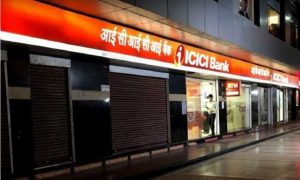A five-judge bench headed by Chief Justice S A Bobde was informed by Solicitor General Tushar Mehta that the Centre has ?in principle accepted? the need for creating additional courts to deal with such cases, after the modalities are worked out on the issue.
New Delhi: The Supreme Court Wednesday constituted a committee under the chairmanship of a former Bombay High Court judge to consider the suggestions and submit a report in three months specifying the steps to be taken for early disposal of cheque bounce cases across the country.
A five-judge bench headed by Chief Justice S A Bobde was informed by Solicitor General Tushar Mehta that the Centre has in principle accepted the need for creating additional courts to deal with such cases, after the modalities are worked out on the issue.
The top court had last week termed the pendency of over 35 lakhs cheque bounce cases as grotesque and suggested to the Centre to come up with a law to create additional courts for a particular period of time to deal with such cases.
It had said that Centre has the power under Article 247 of the Constitution coupled with the duty to establish additional courts to deal with cheque dishonour cases under provisions of the Negotiable Instruments (NI) Act.
Article 247 of the Constitution gives power to Parliament to establish certain additional courts for the better administration of laws made by it or of any existing laws with respect to a matter enumerated in the Union List.
The top court was hearing a suo motu case to work out a mechanism for expeditious and just adjudication of cases relating to dishonour of cheques, fulfilling the mandate of law and reduce high pendency.
During the hearing conducted through video-conferencing on Wednesday, the bench observed that the apex court is considering the matter related to delays that are occurring in disposal of cases under the NI Act and the pendency of these matters is around 30 per cent of the total cases.
The bench also comprising Justices L Nageswara Rao, B R Gavai, A S Bopanna and S Ravindra Bhat said that many suggestions have been received from various stake holders in the matter.
The Union of India has agreed positively to the suggestion of court for implementing the establishment of additional court’s for better administration of NI Act cases, the bench said.
It said that suggestions received by the top court on the issue are very useful and constructive and it needs to be worked out carefully so that alterations and amendments to the procedure do not itself become impediment to the courts, bars as well as the litigants.
?We therefore consider it appropriate to form a committee which will consider the suggestions given at the bar and submit a report clearly specifying the steps to be taken for early disposal of NI Act cases throughout the country, it said.
The bench said that former Bombay High Court judge Justice R C Chavan (rpt R C Chavan) will be the chairman of the committee.
It said that other members of the committee would be officer of the department of financial services not below the rank of additional secretary, officers of department of justice, ministry of corporate affairs, department of expenditure, ministry of home affairs, representatives of the RBI and Indian Banking Association to be nominated by its chairman, representative of the National Legal Services Authority (NALSA) and Solicitor General or his nominee.
It said that the Centre shall provide secretarial assistance to the committee.
It said that copy of the submission of the parties shall be made available to the committee and the panel may consult any expert in the matter.
It asked Mehta to submit the names of other members of the committee by March 12.
On February 25, the top court had asked the Centre whether it can create additional courts under Article 247 of the constitution for expeditious disposal of such matters.
Senior advocate Siddharth Luthra, who is assisting the top court as an amicus curiae in the matter, had earlier given certain suggestions to the court for evolving a mechanism for speedy disposal of such cases including sending of summons electronically through e-mail or social media.
#mute
On March 5 last year, the top court had registered a suo motu case and decided to evolve a “concerted” and “coordinated” mechanism for expeditious disposal of such cases.



































